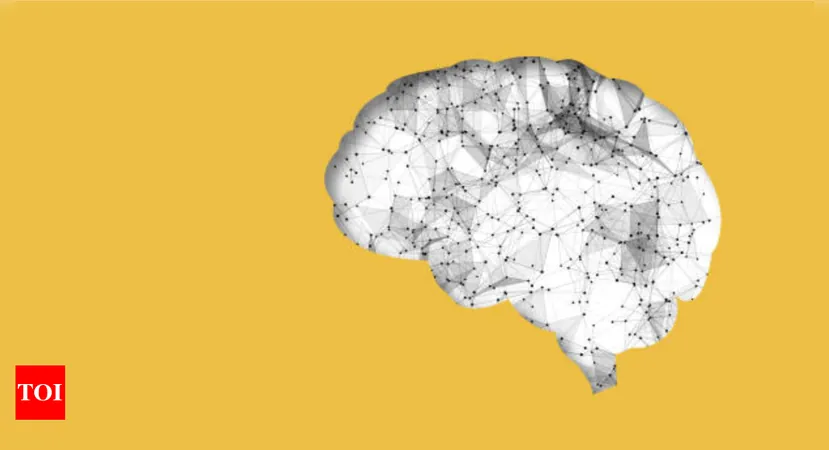
Groundbreaking Study Suggests Potential Reversal of Alzheimer's Disease Symptoms!
2024-12-24
Author: Sarah
Groundbreaking Study Suggests Potential Reversal of Alzheimer's Disease Symptoms!
In a revolutionary discovery, researchers at the CUNY Graduate Center have unveiled a significant link between stress in the brain and the progression of Alzheimer's disease. Their research highlights the integrated stress response in microglia, the brain's primary immune cells, as a critical factor that opens the door to innovative treatment possibilities. Published in the journal Neuron, this study could mark a pivotal moment in our understanding and management of this debilitating condition.
Understanding Alzheimer's Disease
Alzheimer's disease is a relentless neurodegenerative disorder, known to drastically impact memory, thinking, and behavior. The most prevalent cause of dementia, Alzheimer's often begins with minor memory lapses, escalating to profound cognitive and functional impairments. The defining features of the disease include the formation of amyloid plaques and tau tangles in the brain, leading to nerve damage and brain cell death.
Research Insights
"The goal of our research was to identify the harmful microglial activity in Alzheimer's disease and explore therapeutic targets," explained Pinar Ayata, the lead investigator and professor at the CUNY ASRC Neuroscience Initiative. The team discovered a unique neurodegenerative microglial phenotype tied to a stress-related signaling pathway.
Through their research, Ayata and her team found that the activation of the integrated stress response (ISR) prompts microglia to generate toxic lipids, which are detrimental to essential brain cells, including neurons and oligodendrocyte progenitor cells. Remarkably, in preclinical models, the research demonstrated that blocking the stress response or lipid production could successfully reverse the symptoms of Alzheimer's.
Implications and Future Directions
Anna Flury, a member of Ayata's research lab and a dedicated Ph.D. candidate, argued that their findings illuminate the vital connection between cellular stress and the neurotoxic effects of microglia in Alzheimer's disease. "Our research underscores the potential of targeting this pathway to halt the production of toxic lipids or prevent the activation of harmful microglial phenotypes, opening new pathways for treatment," she noted.
The implications of this research are tremendous not only for the millions diagnosed with Alzheimer's but also for the broader field of neurodegenerative diseases. Experts believe that continuing this line of investigation could lead to new therapeutic strategies that fundamentally alter the course of the disease.
Additional Findings
But that's not all—recent studies have also indicated that older adults who contracted COVID-19 may face an increased risk of developing Alzheimer's. Additionally, interesting findings suggest that a specific protein associated with diabetes could reduce the risk of Alzheimer's disease.
Conclusion
As the quest for effective treatments continues, this significant breakthrough in understanding the cellular mechanisms of Alzheimer's disease might just be what researchers and patients have been waiting for. Stay tuned for more updates on this life-altering discovery!




 Brasil (PT)
Brasil (PT)
 Canada (EN)
Canada (EN)
 Chile (ES)
Chile (ES)
 España (ES)
España (ES)
 France (FR)
France (FR)
 Hong Kong (EN)
Hong Kong (EN)
 Italia (IT)
Italia (IT)
 日本 (JA)
日本 (JA)
 Magyarország (HU)
Magyarország (HU)
 Norge (NO)
Norge (NO)
 Polska (PL)
Polska (PL)
 Schweiz (DE)
Schweiz (DE)
 Singapore (EN)
Singapore (EN)
 Sverige (SV)
Sverige (SV)
 Suomi (FI)
Suomi (FI)
 Türkiye (TR)
Türkiye (TR)